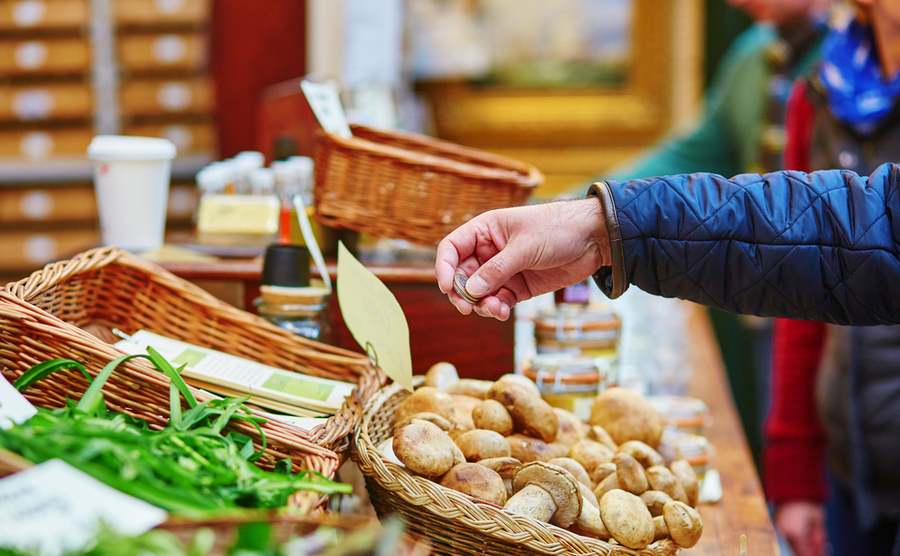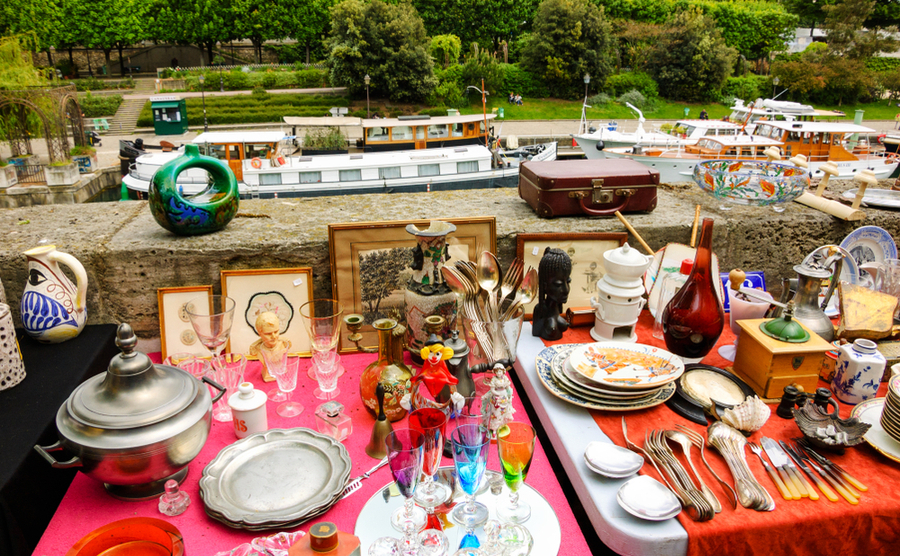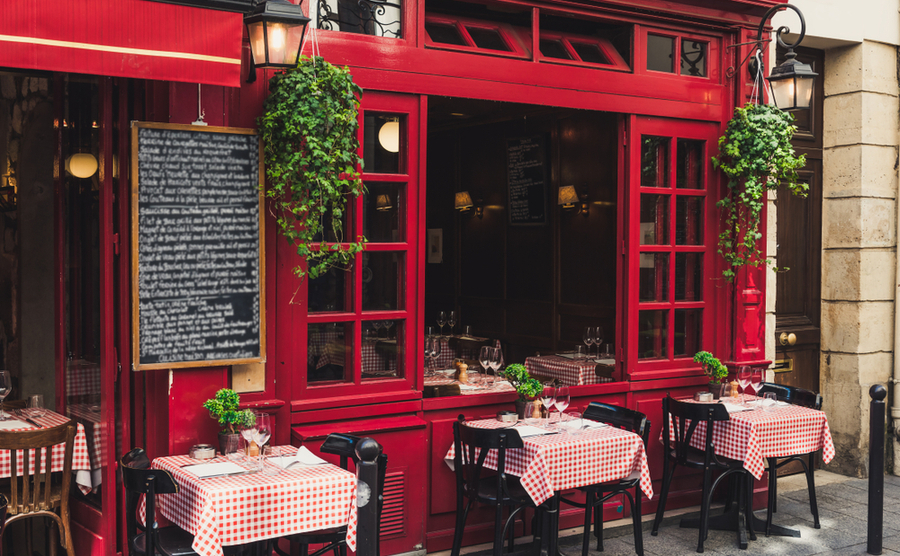Living in France has so many benefits: the laidback lifestyle, the space, the beauty of the countryside, the rivers, the fantastic food and wine – the list goes on! It’s no wonder that France remains one of the most popular countries in Europe for Brits to travel to, buy a home in and generally consider as our closest neighbour.
When it comes to spending money in France, some items can be expensive. The minimum wage per month is €1231, so here are some very handy tips on how to survive France on €1231 a month and still live the good life!
Download your comprehensive France Buying Guide for everything you need to know about purchasing a property.
1. Make full use of the wonderful markets (and not just for food!)
Pretty much every French village and town has a weekly market. Shopping at the market is part of the fabric of most French people’s lives. Not only is the food produce cheaper than many supermarkets, but it is also often fresher and tastier. Our number one tip is to plan ahead and do your weekly food shop at your local market. And don’t forget, many markets sell other items too such as household goods, beds and bed linen, kitchen items, all sorts. A definite money saver!

Shopping at the market is part of the fabric of most French people’s lives.
2. Check out the many bargain shops
Here are some excellent general stores selling all manner of household items, often at knocked down prices. “Action”, “But” “La Foir Fouille” “Magtout” and “Centrakor”. All of these shops stock a huge range of household goods. We love “Action” for its diverse products and very good prices. Toiletries and cleaning products can be expensive in France, but these stores will almost always have a decent range at good value.
For a smooth move to France, you need to make sure that your budget is protected to reduce risk from exchange rate flux. Find out how in our partner Smart Currency Exchange’s guide, The Property Buyer’s Guide to Currency.
3. Vide greniers (attic sales) and bric-a-brac shops
One can sometimes pick up interesting objects for the home and the sellers expect you to haggle for their wares. Likewise, bric a brac shops can be found in most towns and are handy for furniture and soft goods for the home. It is always worth having a real rummage around. Don’t overlook a piece of furniture which may look a little tired – often just a lick of paint will transform it into an attractive item.

Vide greniers are extremely popular in France.
4. Supermarkets
Carrefour, Intermarche and Casino (which is part of Geant) are the main supermarkets in France. Carrefour is probably the highest end in terms of quality but they all have their own brands of goods which are cheaper, similar to Waitrose essential range, for example. For the best value, check out Lidl and Aldi. Not only do they have a good range of quality foods and wine, but they also stock all sorts of household and clothing items with the range changing regularly. The price of a weekly shop at Aldi and Lidl will often cost about half of what it would cost in the other supermarkets. They also have in-house bakeries with fresh bread, croissants etc. being prepared throughout the day. As an example, a baguette in Lidl costs just 35 centimes!
There are a host of activities and places to visit in France which are inexpensive or even free.
5. What to bring over from the UK to save money
Certain things are much more expensive in France. These include tea, English products such as Marmite and pickles, washing powder, some toiletries and paint (which is notoriously expensive and often not the best quality either). Make use of online British shops for these, such as the British Corner Shop, ask friends to bring these things over or pack up your car with items you think you’re going to need before heading over to France. For paint, there are now some online shops, such as UK Paint Depot, where you can order your paint to be sent to France.
6. Eating out and drinking wine
Local family-run restaurants are a joy in France and here, you will probably not be spending as much as you would in the UK. Most of them offer a ‘prix fixe’ menu each weekday with 3 courses, often including a glass of wine and coffee at around €15. France definitely scores points when it comes to buying wine too. In the wine-growing areas, you can buy wine directly from the cave and many have the wine literally on tap. You buy your plastic bottle and fill it up each time you go. There are some truly excellent wines and a huge choice in boxes at around €15 for 10 litres.

Local family-run restaurants are a joy in France.
7. What you can do for next to nothing!
There are a host of activities and places to visit in France which are inexpensive or even free. Many museums, historical monuments and cultural centres have free admission. Another good tip is that parking in most towns is free between midday and 2 pm every day and all day on Sundays. Entertainment in local bars and cafes in the summertime is also often free if you buy a drink or eat a meal. In other words, you can have a superb time without spending an absolute fortune.
Why not spread the cost and buy with family? Read our guide, Buying with Family.
France may not be the cheapest place in the world in which to live but on the other hand, one can most definitely lead a good life without breaking the bank, particularly by planning ahead with one’s shopping. To sum up, it is perfectly possible not only to survive on €1231 per month but to actually enjoy life on such a sum!
Finally, let us not forget that property is much cheaper than in the UK. A budget of around €150,000 will afford you a very nice home with outside space in many parts of the country. Once you are settled in your new home, you will soon discover how many wonderful places there are to discover on a relatively small budget.










